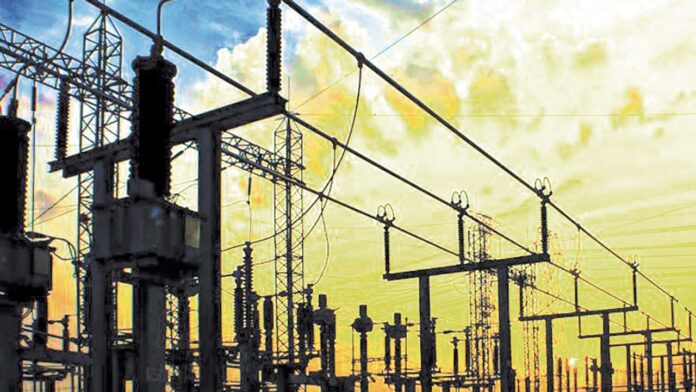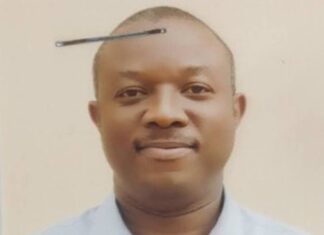Nigerians paying $40m monthly and another $1b bill is in the offing
By Jeph Ajobaju, Chief Copy Editor
Contracts Abuja signed with gas and electricity firms to supply power to the national grid cost taxpayers $40 million monthly without them getting the supply, yet a new $1 billion deal is being planned for additional power the grid cannot take up.
The federal government plans to provide more sovereign guarantees to 14 new solar power projects while the country is choking under multi-million dollar “take or pay” power and gas deals Nigerians do not fully benefit from.
The national grid has inadequate capacity but Abuja remains tied to a $10 million monthly “take or pay” deal with Accugas to supply gas to the Calabar Generation Company (CGC) owned by the Niger Delta Power Holding Company (NDPHC).
And Nigeria has to make a minimum monthly payment of $30 million to Azura-Edo Power (AEP) because of a sovereign guarantee.
Abuja has defaulted on the guarantee a number of times because of paucity of funds, and Accugas and Azura are threatening to activate clauses in the agreements that could damage Nigeria’s international credit rating.
Regardless of the financial burdens, the Ministry of Finance is set to commit Nigeria to another guarantee of $1 billion for 1GW (1,000mw) to be produced from 14 solar projects.
Nigeria has capacity to generate about 12,000mw but the national grid – the transmitter of power from generating companies (GenCos) to distribution companies (DisCos) – cannot take more than 5,000mw at a time.
Because of its handicap, the grid has collapsed on occasions, plunging the entire country into darkness, and many GenCos have had to underproduce by shutting down turbines.
__________________________________________________________________
Related articles:
TCN repeats the sins of NEPA to justify escalated blackouts
Private power generators cost Nigerians N12tr yearly
Surprising facts about solar energy
ColdHubs is using solar energy to reduce N3.5tr food waste
__________________________________________________________________
A new take
Power Minister Abubakar Aliyu on 23 March hosted in Abuja government officials and project developers to resolve the “impasse” around the solar projects since 2016, according to reporting by TheCable.
The meeting, chaired by Finance Minister Zainab Ahmed, was attended by Ahmad Zakari, Presidential on Infrastructure, Financiers, Development Partners, and by officials of the Nigeria Electricity Regulatory Commission (NERC), Nigeria Bulk Electricity Trading (NBET), and DisCos.
After the meeting, Zakari announced on Twitter a $1 billion deal to stabilise power, which he called a “game changer”.
“As we continue to work on Emergency Measures to stabilise power we can’t forget the medium term.
“Working with @ZShamsuna (minister of finance) @HMPowerNG (ministry of power) we structured a meeting for $1b investment for 1000MW of Solar stalled since ‘16. We expect some on grid by ‘23,” he tweeted.
“The projects range from 50MW to 100MW across Sokoto, Kano, Jigawa, Nasarawa, Abuja, Bauchi … some of these states will be joining the league of states with on-grid power plants for the first time.
“These 1GW of Solar projects will be a game changer and a harbinger for more projects.”
Zakari said the project will accelerate achieving 30 per cent of grid power from renewable energy sources by 2030.
Dispute over tariffs
This is not the first time this solar project has faced a flurry of questions.
Babatunde Fashola announced in August 2016 when he was Power Minister that power purchase agreements (PPAs) had been signed with 14 solar photovoltaic projects.
Some of the projects were not licensed. And the tariff was fixed at 11.5 cents per kilowatt hour (kWh), which was considered extortionate.
At the time, tariffs for similar projects in Africa were between 4 cents and 6 cents kWh.
Kemi Adeosun, then Finance Minister, who was not at the signing ceremony, refused to approve the sovereign guarantee.
In a letter dated June 14, 2017 and seen by TheCable, she based her refusal on the reasons stated in the ministry’s guidelines to the industry on issuance of sovereign guarantees.
She said only projects that passed the ministry’s debt sustainability analysis (DSA) would get a guarantee.
The projects must also have emerged through a competitive procurement process, she insisted, and all the power produced must be deliverable to consumers.
This was to prevent a situation where power produced would be “stranded”, in this case because of inadequate national grid capacity.
Adeosun also insisted that all the agencies that would approve PPAs must be involved in the process right from the conceptual modelling of the project.
The 14 solar projects were asked to accept a naira-denominated put-call option agreement (PCOA) and to reduce their tariff from 11.5 cents kWh to 7.5 cents.
Only two projects – Afrenergia and CT Cosmos – accepted the threshold, TheCable learnt, as the rest insisted they would only have a dollar-denominated PCOA.
This was despite the fact the naira PCOA included a clause that they would be paid any true-ups – or shortfalls – arising from the conversion of naira to dollars.
Following the acceptance by Afrenergia and CT Cosmos, Adeosun approved a naira-denominated PCOA for them at the reduced tariff of 7.5 cents kWh.
The grid and the gridlock
Seven projects demanded guarantee by the World Bank and the African Development Bank (AfDB), but the banks said they would not provide support at the quoted 11.5 cents kWh.
After the presentation by Zakari on 23 March, some stakeholders expressed reservations about “a very ambitious target” date of June 2022 for the projects to be closed financially, sources told TheCable.
Since 2016, the lack of sovereign guarantees from the World Bank and the AfDB has discouraged financial institutions from funding the projects.
More people also raised issues with the ability of the national grid to take 1GW to be produced by the solar projects.
Although reinforcements were scheduled to be done, the paucity of funds and lack of prioritisation of the projects mean the Transmission Company of Nigeria (TCN) does not have the capacity to take on 1GW.
This is made worse by the fact the TCN is yet to complete the 14-km Oshogbo line meant to evacuate Azura power plant, years after the plant completed construction and is injecting power onto the grid.
Nigeria continues to pay for the stranded production.
Zakari told the meeting on 23 March that the Power Ministry has set aside N400 billion for the projects, but the promoters asked how the figure was arrived at – particularly because the PPAs are for 20 years.
DisCos have also said they cannot recover 7.5 cents kWh tariff from consumers and they themselves will not take on the cost.
The federal government is once again at the risk of paying for electricity Nigerians cannot get to use.












